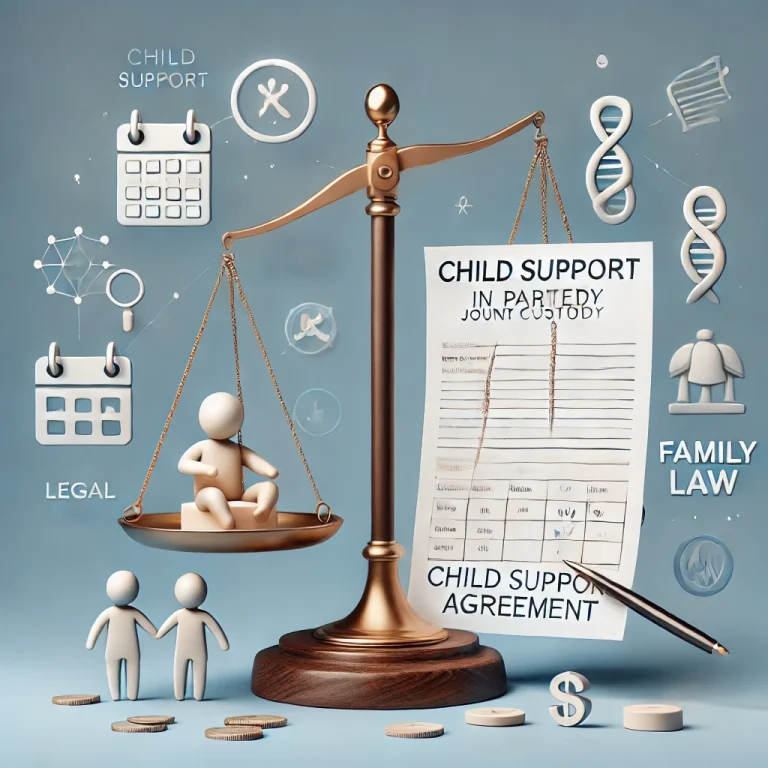Calculation of alimony and accommodation | Recently, there has been a development when it comes to calculating alimony and accommodation, which are calculated differently than before. At the Knesset committee, it was recommended that the amount of alimony, which until now had been calculated according to religious law, will now be determined according to the civil law.
The overriding principle that guides the court in ruling on alimony and accommodation is that the financial responsibility for the children applies to both parents. Therefore, when the court rules on alimony, it will take into account the earning capacity of the father, his expenses as well as his various incomes and as of today it will also take into account the earning capacity of the mother, her various expenses and income. Recently, there has been a development when it comes to calculating alimony and accommodation, which are calculated differently than calculated to date. At the head of a committee in the Knesset, it was recommended that the amount of alimony that until now was calculated according to religious law, will now be determined according to civil law, and especially according to the financial ability of both parents and the length of time the children stay with each.
First, the overriding principle that guides the court in ruling on alimony and accommodation is that the financial responsibility for the children applies to both parents. Therefore, when the court rules on alimony, it will take into account the earning capacity of the father, his expenses as well as his various incomes and as of today it will also take into account the earning capacity of the mother, her various expenses and income. Also the ruling on accommodation fees will not be conclusive, and the court will calculate the accommodation fee when it examines whether the children live in the home owned by the mother or in rent, how the mortgage or rent is paid, so it will charge the father a certain percentage of the accommodation fee unless there is justifiable reason not to charge accommodation, such as the division of equal length of stay and equal earnings.

In order for the court to rule on the amount of alimony, it will first examine what the child’s necessary needs are. Once determined the certain amount that the child needs each month for his basic living, the court will check the income of the father, the mother, their assets and their earning potential. After that, the father will be given the amount he needs to pay for alimony, in correlation with the time of the child’s stay with him, if at all appropriate and correct in the circumstances of the case to do so, because if the distribution of days of stay is equal and the income is equal then there will be no alimony charge.
The issue of calculating alimony and accommodation is one of the most important and acute issues for a divorcing parent. It is important to know that recently there have been changes regarding the determination of alimony and accommodation fees and it is very important to consult a lawyer who deals with family law, so that on the one hand a father will not have to pay too high alimony, and on the other, a mother will not collapse financially due to low alimony. The calculation of the payment of alimony will be based on economic data of both parents, with the committee developing an almost exact formula for calculating the amount of alimony that will be imposed on the parents. The overriding principle of the committee is that the financial responsibility for the children applies to both parents. The payments of the “halves”, the after school classes payments, extra medical care expesnses, tutoring, which to this day have been divided equally between the two parents, will also be divided in relation to their income.
According to the committee’s conclusions, the same formula that the committee will develop will suit most of the children of the State of Israel. In other, exceptional situations, for example in a situation where the child has a disability or needs special needs, this case will be brought before a judge for the purpose of calculating alimony.

Since there is no fixed alimony for each and every child, the court rules the alimony in each case on its own merits after examining all the relevant parameters. What parameters are involved? There are parameters related to the necessary needs of the child and the standard of living to which he is accustomed. For example, if the child was accustomed to a certain number of classes a week or to psychological, emotional therapies, the court would try to consider this matter. A second parameter, related to parents and their financial ability. When the court comes to rule on alimony, it will examine the actual income of the father, his earning potential and whether he receives financial assistance from an external source and how much. The court will examine assets that are in the possession of the father and whether he is financing another, new family. In accordance with the new trend of the courts, the mother’s financial ability, her earning potential and the other parameters that have been examined by the father will also be examined. The calculation of alimony in joint custody will be different and more equal towards both parents, since the court will calculate the alimony when it assumes that both parents bear the child’s expenses equally, since he stays with both of them equally.
This question is a complexed one. Since there is no law that determines the amount of alimony, the payment of alimony varies from child to child, from procedure to procedure, and from family to family. The amount of alimony payment in joint custody is completely different from the amount of alimony payment in partial custody or full custody of the mother. If in the past, in any case the father would have been awarded child support, regardless of the mother’s salary and income, then today things are completely different and the court can rule on the couple joint custody without child support at all. It is important to remember that over time the rules of the court change and progress, so it is advisable to consult a family lawyer for advice and guidance.
The amount of alimony can also vary in the event that the circumstances that existed on the day of the alimony judgment change. For example, when there is a change in the child custody situation, for example a situation where the children have moved from sole custody of the mother to joint custody of both parents, it is customary to reduce a certain amount of alimony, since increasing the child’s stay with the father means increasing the father’s expenses.
As noted in recent years, a new trend is developing in the law, striving for equality between the two parents also in the issue of alimony distribution. Therefore, if both spouses bear the burden of raising the children equally and the mother’s salary is equal to and even exceeds that of the father, the father’s obligation to pay alimony will be exempted altogether.
The issue of child support is an important issue in the entire divorce process, and should not be taken lightly. Since today there is a development and change when it comes to alimony ruling, it is important that every spouse who is facing divorce proceedings knows his or her rights. In general, it can be stated that the payment of alimony in joint custody strives to be as equal as possible, towards both parents, but as mentioned, the court must weigh the full data that the couple presents to it, in order to rule on the proper alimony in each case. Precisely for this reason, it is highly advisable to consult a lawyer who deals exclusively with family law, in order to win a fair trial in family court or rabbinical court, and that alimony that will be decided will reflect the parties’ income, financial ability and children’s needs.
